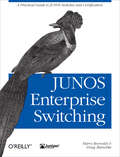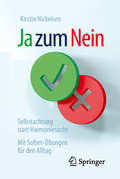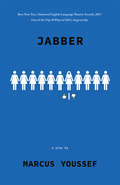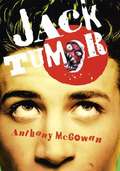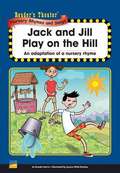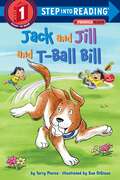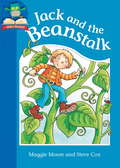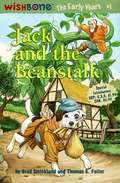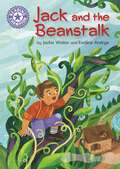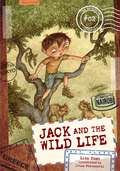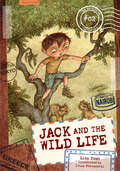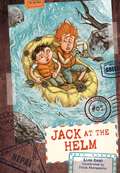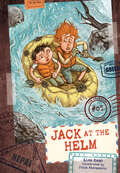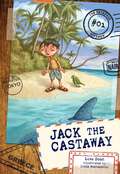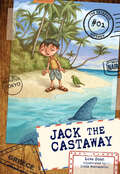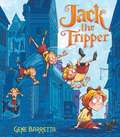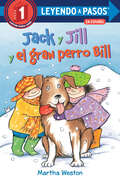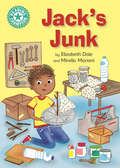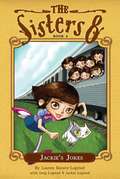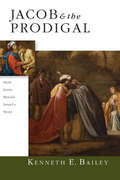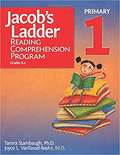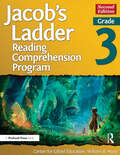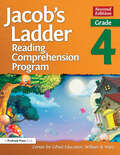- Table View
- List View
JUNOS Enterprise Switching: A Practical Guide to JUNOS Switches and Certification
by Doug Marschke Harry ReynoldsJUNOS Enterprise Switching is the only detailed technical book on Juniper Networks' new Ethernet-switching EX product platform. With this book, you'll learn all about the hardware and ASIC design prowess of the EX platform, as well as the JUNOS Software that powers it. Not only is this extremely practical book a useful, hands-on manual to the EX platform, it also makes an excellent study guide for certification exams in the JNTCP enterprise tracks. The authors have based JUNOS Enterprise Switching on their own Juniper training practices and programs, as well as the configuration, maintenance, and troubleshooting guidelines they created for their bestselling companion book, JUNOS Enterprise Routing. Using a mix of test cases, case studies, use cases, and tangential answers to real-world problems, this book covers:Enterprise switching and virtual LANs (VLANs)The Spanning tree protocol and why it's neededInter-VLAN routing, including route tables and preferencesRouting policy and firewall filtersSwitching security, such as DHCP snoopingTelephony integration, including VLAN voicePart of the Juniper Networks Technical Library, JUNOS Enterprise Switching provides all-inclusive coverage of the Juniper Networks EX product platform, including architecture and packet flow, management options, user interface options, and complete details on JUNOS switch deployment.
Ja zum Nein: Selbstachtung Statt Harmoniesucht - Mit Sofort-übungen Für Den Beruflichen Alltag
by Kirstin NickelsenDieses Buch ist ein echter Selbstschutz-Leitfaden für alle, denen Grenzen setzen schwer fällt. Ihnen kommt ein „Nein“ zu Mehrarbeit oder Gefälligkeiten nur schwer über die Lippen, obwohl der eigene Schreibtisch schon randvoll ist. Stattdessen bleibt der hilflose Ärger über Chefs und Kollegen: „Immer ich, mit mir kann man es ja machen!“. Privat läuft es ähnlich, doch irgendwann ist das Maß voll, sind die Batterien leer. Davor schützt nur gekonntes „Nein“-Sagen – und das will gelernt sein. Wer nicht gut „Nein“ sagen kann, hat in der Regel Angst: vor dem Verlust des Jobs, vor dem Verlust von Zuneigung, Wertschätzung etc. Die Autorin hinterfragt diese Ängste und zeigt Wege, sie einfach und souverän zu bewältigen, eigene Grenzen zu erkennen und diese voll Selbstrespekt zu wahren. So gewinnt sich der Leser wieder als wichtigsten Menschen im eigenen Leben. Zahlreiche praktische Übungen, die sofort in die Tat umgesetzt werden können, machen dieses Buch zu einem besonders wertvollen Alltagshelfer. Die dritte Auflage wurde sorgfältig durchgesehen.
Jabber
by Dennis Foon Marcus YoussefLike many outgoing young women, Fatima feels rebellious against parents she sees as strict. It just so happens that she is Egyptian-born and wears a hijab. When anti-Muslim graffiti appears on the walls of her school, Fatima transfers to a new school. The guidance counsellor there, Mr. E., does his best to help Fatima fit in, but despite his advice she starts an unlikely friendship with Jorah, who has a reputation for anger issues. Maybe, just maybe, Fatima and Jorah start to, like, like each other ...As their mutual attraction grows, the lines Fatima and Jorah cross as they grow closer become the subject of an intense exploration of boundaries - personal boundaries, cultural boundaries, and inherited religious and political boundaries. Fatima and Jorah discover that appearances matter; they've been exposed for their whole lives to images that begin to colour their relationship: images of the Middle East, the working class, and how teenage boys and teenage girls behave. Put all these reactive factors together in the social laboratory that is a high school and observe: is there a solution for Fatima and Jorah?High school, like no other social space, throws together people of all histories and backgrounds, and young people must decide what they believe in and how far they are willing to go to defend their beliefs. Inside a veritable pressure cooker, they negotiate cross-cultural respect and mutual understanding. Jabber does its part to challenge appearances - and the judgments people make based on those appearances.
Jack Tumor
by Anthony McgowanFourteen-year-old Hector, suffering from severe headaches, is diagnosed with a brain tumor which speaks in his head, calling itself "Jack Tumor" and making an effort to improve Hectors home life, increase his popularity, and win him a girlfriend before the operation that will mean the end of one or both of them.
Jack and Jill Play on the Hill: An Adaptation of a Nursery Rhyme
by Brooke HarrisNIMAC-sourced textbook
Jack and Jill and T-Ball Bill (Step into Reading)
by Terry PierceJust in time for spring training! Don't take Big Dog Bill out to the ballgame! This hilarious Step 1 early reader is about a dog who loves T-ball! Well, he loves the ball.Jack and Jill bring Big Dog Bill to their T-ball game. Crack! The moment the ball is hit, Big Dog Bill can be counted on to steal it, and hilarity ensues as everyone tries to catch him. Once Jill spies a hot dog cart, a bright idea to save the daypops into her head. Just like Jack and Jill and Big Dog Bill, written and illustrated by Martha Weston, this fun phonics reader helps children with alliteration, rhyming, and word families. Step 1 Readers feature big type and easy words for children who know the alphabet and are eager to begin reading. Rhyme and rhythmic text paired with picture clues help children decode the story.
Jack and the Beanstalk (Must Know Stories: Level 1)
by Maggie MooreWhen Jack swaps his cow for some magic beans, his life changes forever...A beautifully illustrated retelling of this favourite traditional story. Join Jack's adventures to the top of beanstalk and back again!Must Know Stories includes favourite tales, celebrating the diversity of our literary heritage. Level 1 stories are told in under 500 words, for children to read independently.
Jack and the Beanstalk (Wishbone: The Early Years)
by Brad Strickland Thomas E. FullerWhen Wishbone returns to find the ball he accidentally left in Joe's third grade classroom and must face a big, scary custodian, he imagines himself as Jack, the boy who met a real giant.
Jack and the Beanstalk: Independent Reading Purple 8 (Reading Champion #1076)
by Jackie WalterThis story is part of Reading Champion, a series carefully linked to book bands to encourage independent reading skills, developed with Dr Sue Bodman and Glen Franklin of UCL Institute of Education (IOE)Reading Champion offers independent reading books for children to practise and reinforce their developing reading skills.Fantastic, original stories are accompanied by engaging artwork and a reading activity. Each book has been carefully graded so that it can be matched to a child's reading ability, encouraging reading for pleasure. Perfect for 5-7 year olds or those reading book band orange.
Jack and the Wild Life (The Berenson Schemes #2)
by Lisa DoanAfter a wild plan by his parents left Jack stranded in the Caribbean, the Berenson family decided to lay out some rules. Jack's mom and dad agreed they wouldn't take so many risks. Jack agreed he'd try to live life without worrying quite so much. Then Jack's parents thought up another get-rich-quick scheme. Now the family's driving around Kenya. An animal attack is about to send Jack up a tree―alone, with limited supplies. As Jack attempts to outsmart a ferocious honey badger and keep away from an angry elephant, he'll have plenty of time to wonder if the Berenson Family Decision-Making Rules did enough to keep him out of trouble.
Jack and the Wild Life (The\berenson Schemes Ser.)
by Lisa Doan Ivica StevanovicAfter a wild plan by his parents left Jack stranded in the Caribbean, the Berenson family decided to lay out some rules. Jack's mom and dad agreed they wouldn't take so many risks. Jack agreed he'd try to live life without worrying quite so much. Then Jack's parents thought up another get-rich-quick scheme. Now the family's driving around Kenya. An animal attack is about to send Jack up a tree?alone, with limited supplies. As Jack attempts to outsmart a ferocious honey badger and keep away from an angry elephant, he'll have plenty of time to wonder if the Berenson Family Decision-Making Rules did enough to keep him out of trouble.
Jack at the Helm (The Berenson Schemes #3)
by Lisa DoanJack's parents have bought a farmhouse in Nepal. It'll be the site of a new religion―their latest get-rich-quick scheme. Sure, the Berensons don't know quite how to get to the place. But once they arrive, their plan is sure to work. When the Berenson family's travels leave Jack lost in the wilderness of Nepal, a patched-up old raft is the only way to track down his mom and dad. At least this time, Jack has company. He's riding with Harry from Connecticut, a traveling dude who has been trying to find himself―and who also wound up stranded. As Jack and Harry ride down a winding river, they'll have to watch out for rocks, rapids, and even crocodiles!
Jack at the Helm (The\berenson Schemes Ser.)
by Lisa Doan Ivica StevanovicJack's parents have bought a farmhouse in Nepal. It'll be the site of a new religion?their latest get-rich-quick scheme. Sure, the Berensons don't know quite how to get to the place. But once they arrive, their plan is sure to work. When the Berenson family's travels leave Jack lost in the wilderness of Nepal, a patched-up old raft is the only way to track down his mom and dad. At least this time, Jack has company. He's riding with Harry from Connecticut, a traveling dude who has been trying to find himself?and who also wound up stranded. As Jack and Harry ride down a winding river, they'll have to watch out for rocks, rapids, and even crocodiles!
Jack the Castaway (The Berenson Schemes #1)
by Lisa DoanJack's parents have been chased out of Tokyo, gone broke in Greece, and hosted Nairobi's least successful safari. Next they’re taking Jack on a Caribbean vacation—whether Jack wants to go or not. The Berensons are about to start a snorkeling business. It's their latest get-rich-quick scheme. With these experienced world travelers at the helm, what could go wrong? Jack's used to staying indoors and not taking chances. When his parents take him out on the water, he ends up shipwrecked. Now Jack has to survive on a tropical island…and avoid a whale shark that's swimming near the beach.
Jack the Castaway (The\berenson Schemes Ser.)
by Lisa Doan Ivica StevanovicJack's parents have been chased out of Tokyo, gone broke in Greece, and hosted Nairobi's least successful safari. Next they’re taking Jack on a Caribbean vacation—whether Jack wants to go or not. The Berensons are about to start a snorkeling business. It's their latest get-rich-quick scheme. With these experienced world travelers at the helm, what could go wrong? Jack's used to staying indoors and not taking chances. When his parents take him out on the water, he ends up shipwrecked. Now Jack has to survive on a tropical island?and avoid a whale shark that's swimming near the beach.
Jack the Tripper
by Gene BarrettaSomeone is tripping students at Benjamin Dizzie Elementary School and taking their candy and homework, but the resulting nervousness does not quell peoples excitement over the upcoming Dizzie Day Parade, where the rule is "anything goes."
Jack y Jill y el gran perro Bill (LEYENDO A PASOS (Step into Reading))
by Martha WestonDale la bienvenida al invierno con este álbum ilustrado en español acerca de un día nevado. ¡Es perfecto para pequeños que comienzan a leer solos!Jack y Jill y el gran perro Bill pasean en su trineo en un día de invierno. Cuando el gran perro Bill ve a un conejo en la colina, esto causa un caos. Esta divertida historia está llena de aliteración, rima y nieve . . . muchísima nieve. LEYENDO A PASOS es una línea de Step into Reading que ofrece ediciones en español de libros nivelados. Los libros Paso 1 tienen letra grande y palabras fáciles. Son ideales para niños que conocen el abecedario y que quieren comenzar a leer. Su ritmo, rima y pistas visuales contribuyen a la comprensión del texto. This snowy Step 1 reader gets the Spanish treatment! Jack and Jill and big dog Bill go sledding one snowy winter day. When big dog Bill notices a rabbit on the hill, mayhem ensues. This fun early reader in Spanish is filled with alliteration, rhyme, and snow . . . so much snow! Step 1 Readers feature big type and easy words for children who know the alphabet and are eager to begin reading. Rhyme and rhythmic text paired with picture clues help children decode the story. LEYENDO A PASOS is a Spanish-language line of Step into Reading.
Jack's Junk: Independent Reading Turquoise 7 (Reading Champion #169)
by Elizabeth DaleJack likes collecting junk so he can make things. Sometimes they need making a few times before they work, but luckily he's good at mending things too!Reading Champion offers independent reading books for children to practise and reinforce their developing reading skills.Fantastic, original stories are accompanied by engaging artwork and a reading activity. Each book has been carefully graded so that it can be matched to a child's reading ability, encouraging reading for pleasure.Independent Reading Turquoise 7 stories are perfect for children aged 5+ who are reading at book band 7 (Turquoise) in classroom reading lessons.
Jack's birthday (Rigby PM Plus Blue (Levels 9-11), Fountas & Pinnell Select Collections Grade 3 Level Q #Red (Levels 3-5))
by Jenny Giles Betty GreenhatchThis is the third story in the PM Plus series about Jack and Billy. In this story, Jack receives a new car for his birthday from his mother and father. Billy is envious and the car disappears. Dad comes to the rescue and all is well.
Jackie's Jokes (The Sisters Eight #4)
by Lauren Baratz-Logsted Greg Logsted Jackie LogstedApril Fools' Day is long and hard for the third-grade Huit octuplets, but it is nothing compared to the challenges of Tax Day, through which Jackie discovers her special power and gift and learns more about their parents' mysterious disappearance.
Jacob & the Prodigal: How Jesus Retold Israel's Story
by Kenneth E. BaileyIsrael, the community to which Jesus belonged, took its name from their patriarch Jacob. His story of exile and return was their story as well. In the well-known tale of the prodigal son, Jesus reshaped the story in his own way and for his own purposes. In this work, Kenneth E. Bailey compares the Old Testament saga and the New Testament parable. He unpacks similarities freighted with theological significance and differences that often reveal Jesus' particular purposes. Drawing on a lifetime of study in both Middle Eastern culture and the Gospels, Bailey offers here a fresh view of how Jesus interpreted Israel's past, his present and their future.
Jacob's Ladder Reading Comprehension Program - Primary 1
by Tamra Stambaugh Joyce L. VanTassel-BaskaThe Jacob's Ladder Reading Comprehension Program targets reading comprehension skills in learners by moving students through an inquiry process from basic understanding to critical analyses of texts using a field-tested method developed by the Center for Gifted Education at The College of William and Mary. Students in grades K–2 will learn to comprehend and analyze any reading passage after completing the activities in this series. The Primary 1 book, geared for students in grades K–1, includes stories and ladder tasks carefully selected for young children to develop oral communication and listening skills in addition to the other ladder goals. This level provides stories focused on picture analysis, read aloud, classics, and original works.
Jacob's Ladder Reading Comprehension Program: Grade 3
by Center for Gifted Education, William & MaryThe Jacob's Ladder Reading Comprehension Program targets reading comprehension skills in high-ability learners by moving students through an inquiry process from basic understanding to critical analyses of texts, using a field-tested method developed by the Center for Gifted Education at William & Mary. Students in grade 3 will learn to comprehend and analyze any reading passage after completing the activities in Jacob's Ladder, Grade 3 (2nd ed., previously published as Level 1). Research conducted by the Center for Gifted Education with Title 1 students demonstrated that the Jacob's Ladder Reading Comprehension Program delivers results related to improved reading comprehension, increased critical thinking, and an enhanced interest in reading. Using skill ladders connected to short stories, poetry, essays, and nonfiction, students move from lower order, concrete thinking skills to higher order, critical thinking skills. The ladders include multiple skills necessary for academic success, covering language arts standards such as sequencing, determining cause and effect, classifying, inferencing, and recognizing main ideas. The second edition of the book builds off the previous Level 1 edition, including new readings and ladders for student use.This book provides teachers with an explanation of the nature of supplementary tasks that scaffold reading comprehension. Also included is an overview of the goals and objectives of the Jacob's Ladder tasks and suggestions for implementation, giving every teacher the tools needed to promote successful reading comprehension. Optional Student Workbook PacksIn addition to this teacher's guide, companion student workbooks are available for Grade 3
Jacob's Ladder Reading Comprehension Program: Grade 3
by William & Center for Gifted EducationThe Jacob's Ladder Reading Comprehension Program targets reading comprehension skills in high-ability learners by moving students through an inquiry process from basic understanding to critical analyses of texts, using a field-tested method developed by the Center for Gifted Education at William & Mary. Students in grade 3 will learn to comprehend and analyze any reading passage after completing the activities in Jacob's Ladder, Grade 3 (2nd ed., previously published as Level 1).Research conducted by the Center for Gifted Education with Title 1 students demonstrated that the Jacob's Ladder Reading Comprehension Program delivers results related to improved reading comprehension, increased critical thinking, and an enhanced interest in reading. Using skill ladders connected to short stories, poetry, essays, and nonfiction, students move from lower order, concrete thinking skills to higher order, critical thinking skills. The ladders include multiple skills necessary for academic success, covering language arts standards such as sequencing, determining cause and effect, classifying, inferencing, and recognizing main ideas. The second edition of the book builds off the previous Level 1 edition, including new readings and ladders for student use.This book provides teachers with an explanation of the nature of supplementary tasks that scaffold reading comprehension. Also included is an overview of the goals and objectives of the Jacob's Ladder tasks and suggestions for implementation, giving every teacher the tools needed to promote successful reading comprehension.Optional Student Workbook PacksIn addition to this teacher's guide, companion student workbooks are available for Poetry, Short Stories, and Nonfiction. The student workbooks feature ample room for student responses and notes, make reviewing and providing feedback on student work easier than ever, provide students with an easy-to-use reference to use during discussions, and save time, as there is no need to reproduce student handouts.Grade 3
Jacob's Ladder Reading Comprehension Program: Grade 4
by Center for Gifted Education, William & MaryThe Jacob's Ladder Reading Comprehension Program targets reading comprehension skills in high-ability learners by moving students through an inquiry process from basic understanding to critical analyses of texts, using a field-tested method developed by the Center for Gifted Education at William & Mary. Students in grade 4 will learn to comprehend and analyze any reading passage after completing the activities in Jacob's Ladder, Grade 4 (2nd ed., previously published as Level 2). Research conducted by the Center for Gifted Education with Title 1 students demonstrated that the Jacob's Ladder Reading Comprehension Program delivers results related to improved reading comprehension, increased critical thinking, and an enhanced interest in reading. Using skill ladders connected to short stories, poetry, essays, and nonfiction, students move from lower order, concrete thinking skills to higher order, critical thinking skills. The ladders include multiple skills necessary for academic success, covering language arts standards such as sequencing, determining cause and effect, classifying, inferencing, and recognizing main ideas. The second edition of the book builds off the previous Level 2 edition, including new readings and ladders for student use.This book provides teachers with an explanation of the nature of supplementary tasks that scaffold reading comprehension. Also included is an overview of the goals and objectives of the Jacob's Ladder tasks and suggestions for implementation, giving every teacher the tools needed to promote successful reading comprehension. Optional Student Workbook PacksIn addition to this teacher's guide, companion student workbooks are available for the short story readings, the poetry readings, and the nonfiction readings. The student workbooks, exclusively available directly from Prufrock Press, feature more space for student responses and make checking and providing feedback on student work easier than ever.
